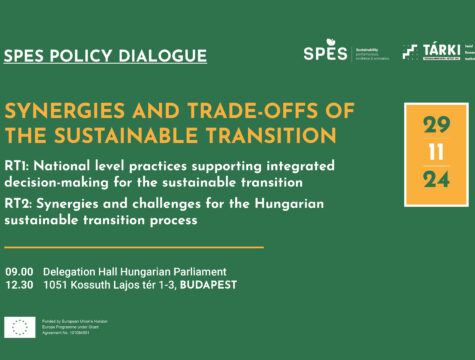We know that happiness is good for a flourishing life. We also know from research that happy people are healthier, care more about the others, they are more open to supporto socio-ecological transformation. But the quest for happiness often fails, traditionally because of addiction and over consumption and recently also because of climate anxiety.
A possibile solution out of this impasse starts from a redefinition of the understanding of happiness, by introducing the concept of flourishing life, and continues with a refining of the strategies that are employed to seek pleasure, that is by introducing the idea of sustainable hedonism.
Orsolya Lelkes, a SPES project member from TARKI Research Institute, explained tese topics in her presentation “Flourishing life and Sustainable Hedonism” in the framework of the first Time ToBe Blooming webinar “A dip in Sustainable Wellbeing”.
She discusses these topics with:
- Tuuli Hirvilammi, who presented the Horizon funded project ToBe and laid the groundwork for understanding our vision of sustainable wellbeing.
- Philippe Roman, who concluded the session by sparking an exciting debate on how Sustainable Wellbeing could shape the economy and economics
The panel starts at min 00:17:30
This presentation has been part of the webinar entitled “A Dip in Sustainable Wellbeing: Understanding good life within planetary boundaries”, the first in the Time ToBe Blooming webinar series.
The webinar series is organised under the framework of ToBe, a 3-year long research project funded by Horizon Europe. Acknowledging the need of a paradigm that places wellbeing at its core instead of economic growth, the project aims to discover the ways in which mindsets, indicators, innovations, and policies could better work together towards a sustainability paradigm. In this regard, ToBe intends to contribute to filling the existing knowledge gap in order to create a better understanding of a sustainable welfare economy through integrated policies and transformative indicators.




